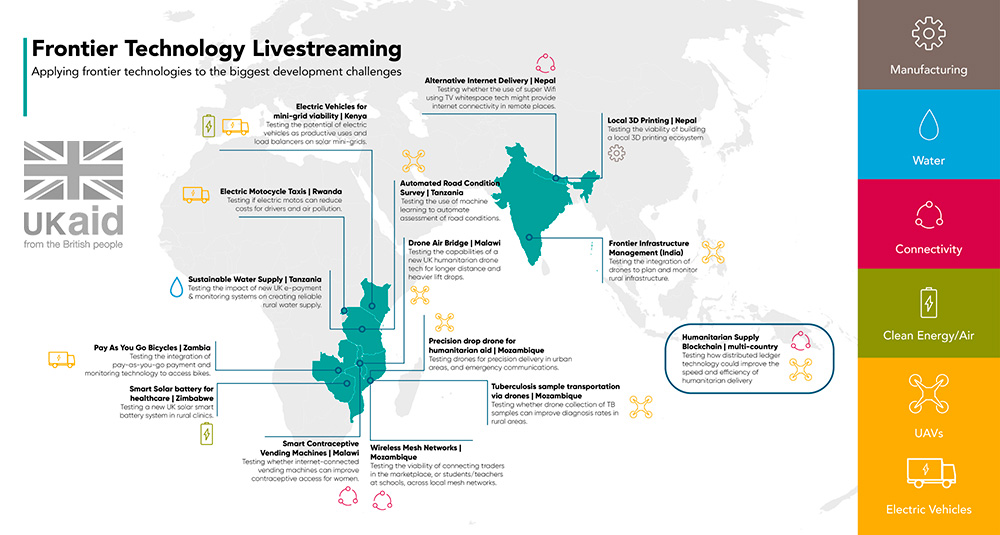Kira Nezu

We at Datarella are very proud to announce that we will work with the British Government Department for International Development (DFID) to develop a pilot project on the topic of “Blockchain in Humanitarian Supply Chains“!
The project is supported by the DFID innovation and future technologies programme, Frontier Technology Livestreaming. They source ways of improving how DFID works across the world using new technologies from DFID staff. Naturally, blockchain is one of those technologies, and supply chain operations is a very applicable area for this technology for three main reasons:
1. Transparency – Humanitarian supply chains could benefit from having the right tools to achieve increased transparency in a secure manner. More transparency could also facilitate collaboration across organisations.
2. Efficiency – If the operatives working at organisations in DFID and similar organisations (e.g. USAID, the UN World Food Programme, etc.) could rely more on the quality of data, they could focus on other matters. This could contribute to decreased “shrinkage” and thus improved efficiency as more goods are delivered to those in need.
3. Collaboration – Having a shared database of goods, shipments and importantly accountability, where many can write and read, but not change the history, is an ideal setup for collaboration. This could enable the creation of standards for data models and improved service to both those funding (mostly tax payers) and those on the receiving end.
With these prerequisites in mind, we are looking forward to the coming phases and sprints of the pilot where we will implement a live blockchain solution, hopefully of great use to many people, especially those in need of immediate and unconditional aid.
The project consists of building a blockchain-based system to track a shipment of plastic sheeting shelter kits (try to say that ten times in a row) from an offshore warehouse, by multiple logistics service providers to a country where they are needed. There they have to be cleared through customs, meaning that a consignee will need to assume responsibility for the shipment. This will also be tracked using a smart contract. Thereafter, a so-called implementing partner will start transporting and deploying the kits within the country.
If you have experience or are interested in learning more about this project and blockchain in humanitarian supply chains, feel free to @ @mountbranch or @datarella on twitter! Also, here’s a link to a Medium post by FTL themselves about the initial phase of the project!
